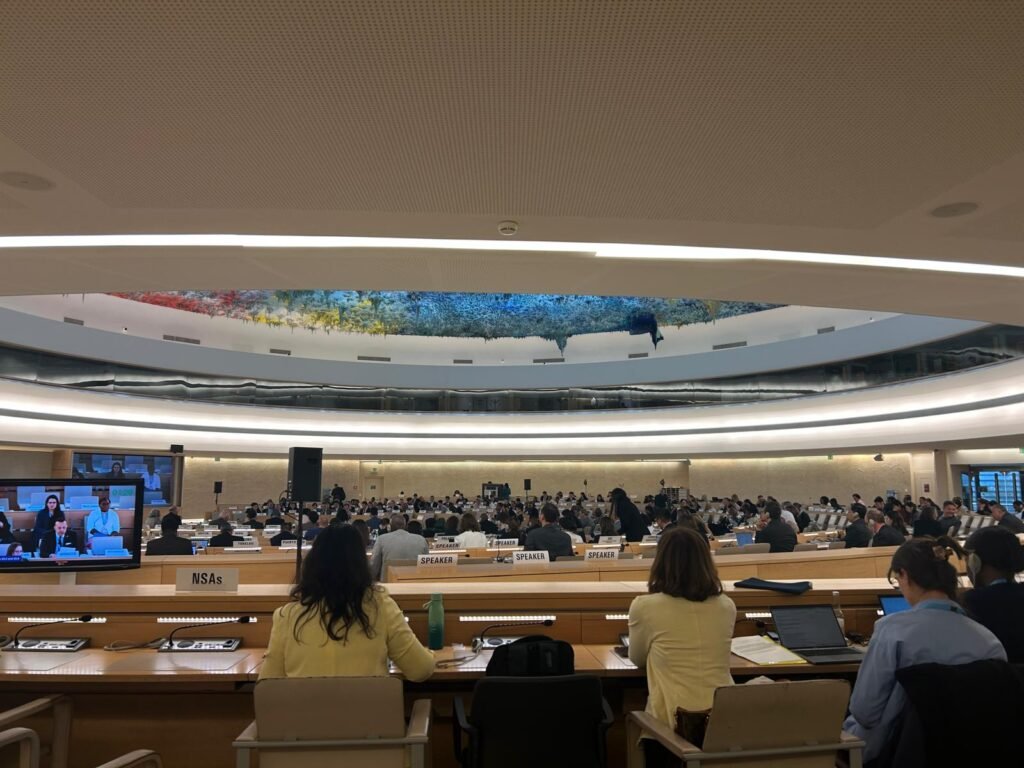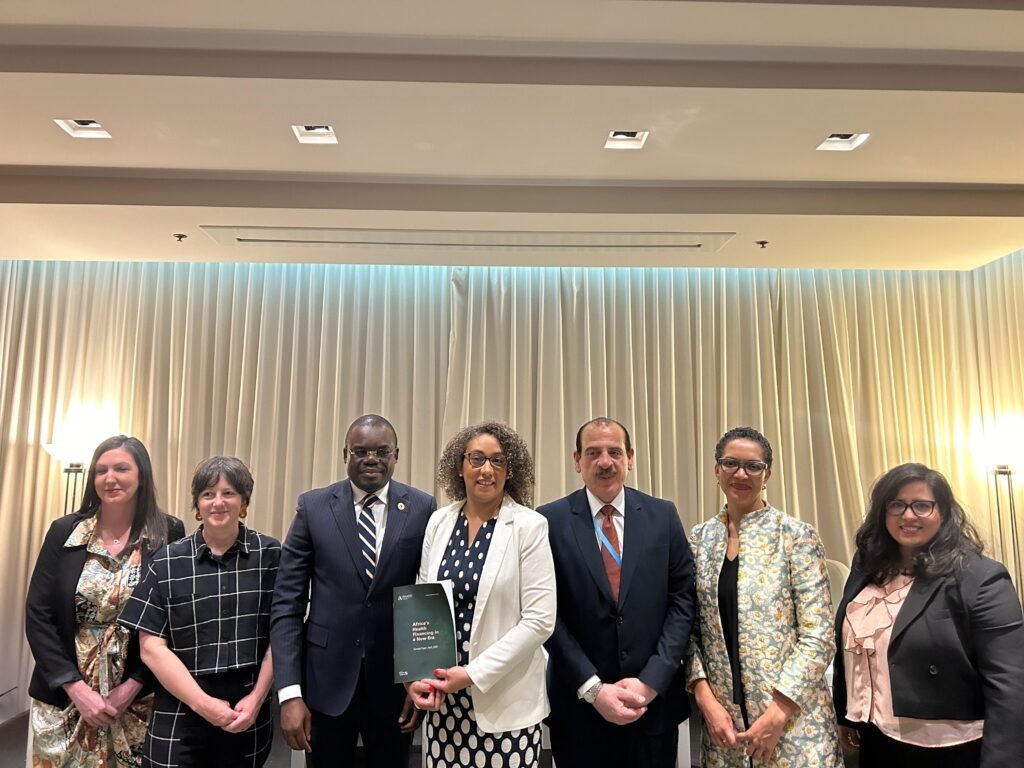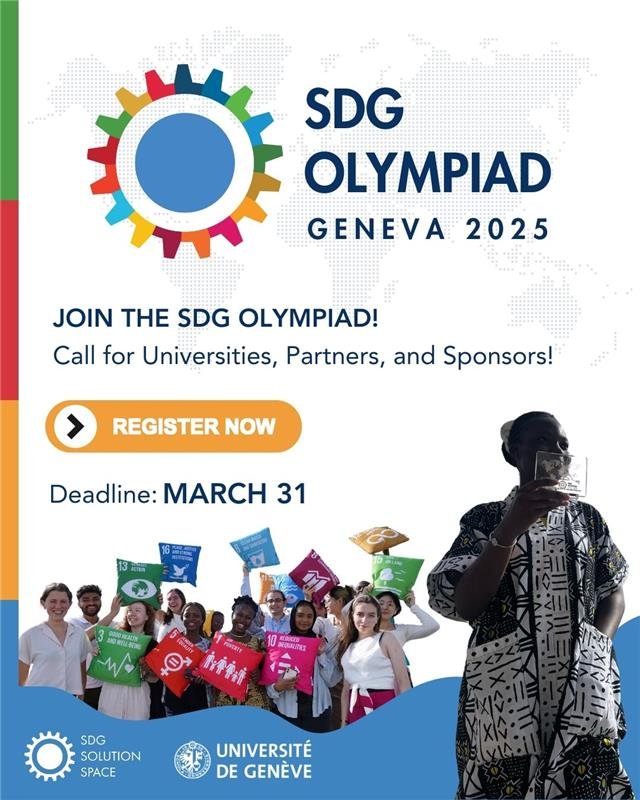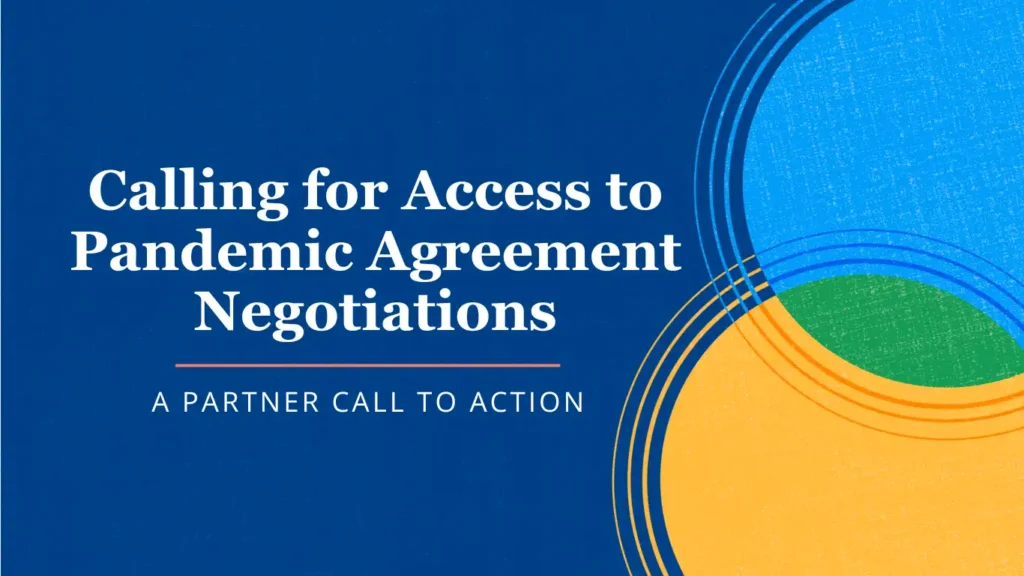78th World Health Assembly

Amidst severe financial limitations, the 78th World Health Assembly (WHA78) took place in Geneva, Switzerland, from May 19–27, 2025. Following the formal resignation of Argentina and the United States, as well as donor fatigue, the WHO’s 2026–2027 budget was cut from US$5.3 billion to US$4.2 billion. To stabilize WHO’s core funding, Member States responded by approving a 20% increase in assessed contributions for the second consecutive biennium. Even so, the organization will need to implement additional cutbacks, such as possible layoffs, divisional reorganizations, and decentralization to regional offices., which is expected to take place next month. The WHO Investment Round attracted pledges totaling more than US$210 million. In addition to China, Norway, France, Germany, and other countries, Switzerland contributed 66 million CHF, or around US$80 million. This support was reinforced by philanthropic foundations, indicating a shared awareness of WHO’s vital role in addressing global health issues. During consultations, the proposed Global Plan of Action on Climate Change and Health encountered opposition. The WHO’s involvement in adaptation and mitigation initiatives, as well as the funding of adaptation in low-income nations, were the main points of contention. In the end, the idea was approved in principle, but it won’t be put into action unless WHO raises US$1.66 million to address the existing gap and another US$30 million until 2028. A resolution on skin diseases was adopted without contest, marking the first time these conditions have been recognized as a global public health priority. The resolution directs WHO to create a comprehensive framework addressing treatment, prevention, and equitable access, particularly for vulnerable populations, with a budget of $510,000 for 2026-2027. The Assembly reaffirmed the Global Action Plan on Antimicrobial Resistance (AMR), which is set for a complete update in 2026. Countries voiced support for the One Health framework, and WHO was entrusted with creating new implementation tools. The implementation of stronger criteria for antimicrobial manufacturing waste showed a commitment to connecting industrial practices with environmental and human health effects. In addition, the Assembly approved Indonesia’s request to move from the South-East Asia Region to the Western Pacific Region, demonstrating WHO’s ability to adjust to geopolitical changes. The Executive Board concluded its 157th session on 28–29 May 2025, approving new procedures for ethical oversight of WHO’s leadership. Following extensive consultations, the Board approved a structured framework for examining charges of misconduct against the Director-General, which included the formation of an independent review panel. 1 – Read more about the Programme, Budget and Administration Committee (PBAC) 42nd meeting, held 14–16 May 2025. 2 – Read more about the 78th World Health Assembly (19–27 May 2025). 3 – Read more about the 157th Executive Board meeting (28–29 May 2025).
Rethinking Health Financing: A Dialogue on Sustainable and Innovative Health Financing Solutions

Experts gathered to tackle the pressing issue of sustainable health financing in the Health Diplomacy Alliance side event “Investing in Health Financing: Building a Resilient and Sustainable Healthcare System,” on the sidelines of the 78th World Health Assembly. Ms. Katherine Urbaez, Executive Director of the Alliance, as part of the Pillars of work of the organisation, opened and moderated the event by highlighting the urgency of sustainable health financing amid global disruptions impacting health and development. She noted that Official Development Assistance has largely stalled over the past decade while rising security and emergency costs strain health budgets. To address this, health diplomacy plays a key role in balancing global solidarity with national ownership and securing predictable support for institutions like the WHO. Many initiatives are being undertaken by countries, such as tax reforms, reprioritising health in national budgets, and fostering Public-Private Partnerships with transparent governance. The discussion focused on two streams: national and regional pathways, and innovative approaches to health financing, but all within today’s complex geopolitical context and the need for resilient health systems. Dr. Jean Kaseya, Director General of Africa CDC, emphasised a bold paradigm shift: “The plan is not to fill gaps, it’s to rethink the system of health financing.” He stressed the urgent need for sovereign control over health strategies and budgets, calling for “strong governance, data-driven systems, and public-private partnerships to measure and deliver results.” Dr. Kaseya also pointed out that only 16 African countries currently have concrete plans to achieve SDG3, pressing the question: “How much money is actually needed and what is the return on investment?” The role of domestic resources and innovative financing mechanisms, such as health taxes, was another focal point. “We need to rethink multilateralism,” Dr. Kaseya said, recognising the steep decline in ODA and the growing demand for countries to “do more with less.” This call for realignment and efficiency was echoed throughout the discussions and highlighted regional cooperation efforts that focused on better governance and increased impact. Dr. Kaseya also presented Africa’s Health Financing in a New Era, a comprehensive strategy that radically transforms how health systems are financed in Africa. Hon. Dr. Amr Kandeel, Assistant Minister of Health of Egypt, highlighted the pressure of global inflation and supply chain disruptions on health systems. He emphasised Egypt’s commitment to Universal Health Coverage through the Universal Health Insurance system, which has already quadrupled the health budget in its second phase. Hon. Dr. Kandeel stressed the importance of investing in digital infrastructure, workforce development, and prevention, while promoting inclusive governance and public-private partnerships to build an equitable and sustainable health system. During the discussion on the new innovative approaches to health financing, Dr. Mary-Ann Etiebet, CEO of Vital Strategies, outlined the “triple shocks” battering health systems: stagnant development aid, tightening government budgets, and increasing pressures from non-communicable diseases, climate shocks, and demographic shifts. She spotlighted health taxes – particularly on sugar and tobacco – as powerful tools to sustain health system funding while promoting accountability, transparency, and good governance. Dr. Etiebet drew attention to a 2024 report by the Task Force on Fiscal Policy for Health and noted that a 50% excise tax increase on tobacco, alcohol, and sugary drinks could generate an estimated $3.7 trillion globally over five years. She called for better governance and management, as well as smarter data infrastructure to help governments prioritize spending effectively. Dr. Karlee Silver, CEO of Grand Challenges Canada, brought a grassroots innovation perspective, illustrating how catalytic capital – blended grants, loans, and equity – can overcome market failures and scale promising health innovations. She shared that local solutions supported by the Grand Challenges platform in Ghana are addressing real maternal and child health problems. Dr. Silver stressed the importance of rethinking the system and pulling the full weight of innovative approaches, pointing to development impact funds and results-based financing as mechanisms that can accelerate change. Leslie Rae Ferat, President of the NCD Alliance and Executive Director of the Global Alliance for Tobacco Control, underscored the importance of WHO’s “best buys,” particularly taxes on tobacco, sugary drinks, and alcohol, which generate significant government revenue while reducing consumption of these harmful products. She cautioned that non-communicable diseases (NCDs), responsible for 80% of preventable deaths, amplify vulnerability to health crises like COVID-19. This dual effect lowers the risk of non-communicable diseases, leading to better public health and long-term savings for health systems. Finally, Dr. Ballkis Abdelmoulla, member of the WHO Youth Council, highlighted the often-overlooked human resource crisis in health: brain drain, poor infrastructure, and harsh working conditions in rural areas. Criticising siloed donor funding and disparities between private and public care quality, she called for “bottom-up interventions” and better coordination among donors to support national NCD goals such as cervical cancer screening and HPV vaccination. This dialogue made clear that building resilient and sustainable health systems requires a blend of national ownership, innovative financing, strong governance, and coordinated multilateral efforts. The path forward is complex but critical, demanding both visionary policies and practical tools to transform health financing amid a rapidly evolving global context.
Member States Adopt Landmark Resolution on Skin Diseases at 78th World Health Assembly

Geneva, May 2025 — In a historic move to elevate skin health on the global public health agenda, Member States at the 78th World Health Assembly (WHA78) adopted the resolution titled “Skin Diseases as a Global Public Health Priority.” Led by Côte d’Ivoire and co-sponsored by Colombia, China, Egypt, Micronesia, Nigeria, and Togo, the resolution marks a transformative step toward addressing the needs of over 2 billion people affected by skin conditions worldwide. Skin diseases and wounds are among the most common health conditions globally, yet they remain disproportionately neglected in national and international health strategies. The resolution acknowledges the wide-ranging impact of skin conditions, including infectious, autoimmune, genetic, and climate-sensitive diseases, and calls for a comprehensive, integrated response. The resolution mandates the development of a Global Action Plan that will focus on prevention, early detection, effective treatment, and long-term care, while promoting equitable access to affordable, high-quality services and integrating skin health into broader health systems. “This resolution marks a turning point,” said Jennifer Austin, CEO of the International Alliance of Dermatology Patient Organizations (GlobalSkin). “For the first time, the voices of people living with skin diseases have been truly heard by Ministers of Health all around the world. Now, we must work together to turn this commitment into meaningful and lasting action.” “This is a major milestone for global dermatology,” said Prof. Henry W. Lim, President of the International League of Dermatological Societies (ILDS). “It reflects decades of advocacy and scientific progress. The next step is to ensure that implementation is inclusive, well-resourced, and sustainable.” The resolution urges Member States to: Strengthen primary healthcare systems and workforce training. Expand access to affordable diagnostics and treatments. Integrate skin health into disability, rehabilitation, and mental health policies. Promote research, surveillance, and innovation, including digital tools and tele-dermatology. It also calls on the international community including NGOs, academic institutions, and the private sector to collaborate in supporting implementation, reducing stigma, and advancing access to care. “We were glad to have engaged with Member States throughout the process leading to this resolution,” said Katherine Urbáez, Founder and Executive Director of the Health Diplomacy Alliance. “We are committed to continuing our support for the development, consultation, and implementation of the Global Plan of Action on skin diseases, among all groups and collective efforts of leading organizations.” The success of this resolution will depend on the collaboration of all stakeholders – governments, civil society, healthcare providers, researchers, and patient organizations – to ensure that the forthcoming Global Plan of Action on skin diseases is inclusive, evidence-based, and responsive to the needs of those most affected. This resolution is not just a policy achievement; it is a global commitment to improving the lives of those affected by skin diseases, striving to achieve universal health coverage and ensuring that no one is left behind. Media Contact:Fahad Parvez Communications Manager GlobalSkin fahad.parvez@globalskin.org
SDG Olympiads 2025: Empowering Global Youth in Geneva

The SDG Olympiads 2025 are set to take place in Geneva, Switzerland, from October 10 to 13, 2025, hosted at the University of Geneva’s SDG Solution Space. This global competition brings together students to co-create innovative solutions aligned with the United Nations Sustainable Development Goals (SDGS). Building on the success of the 2024 edition in Paris, the 2025 Olympiads will focus on Planetary Health, emphasising the impact of climate change on human health. Participants will engage in team-based problem-solving, utilising tools like citizen science and artificial intelligence to address critical data gaps essential for achieving the SDGS. The event is part of a broader educational program that supports projects developed during the SDG Summer Schools and other innovation events worldwide. Selected teams will receive coaching to refine their prototypes, engage stakeholders, and prepare for the final showcase in Geneva, where an international jury will evaluate their solutions. Students interested in participating can apply through the University of Geneva’s Geneva Summer Schools website, with the application deadline set for April 30, 2025. Université de Genève For more information and to express interest in participating, visit the SDG Olympiad 2025 official page.
Launch AMR Policy – UNGA

Health Diplomacy Alliance Joins Global Public Investment (GPI) Initiative

GPI advocates for the pivotal role of international public finance in addressing urgent global challenges such as the climate emergency, pandemic preparedness, and achieving the Sustainable Development Goals (SDGs). It promotes a structured approach to meeting global ambitions through sustained investments in essential goods, capital, and infrastructure. GPI is guided by three core principles: – Inclusive Participation: Emphasizing a horizontal approach where all countries collaborate equally, moving away from traditional top-down decision-making and paternalistic donor-recipient dynamics. –Shared Decision-Making: Promoting a more representative governance structure that includes civil society, enhancing transparency and effectiveness in international public finance. – Universal Benefits: Prioritizing equitable outcomes by directing investments towards addressing poverty, inequality, and sustainability needs globally, fostering resilience across all communities. At the Health Diplomacy Alliance, we are dedicated to enhancing resilient health systems through sustainable funding mechanisms at both global and national levels. Collaborating with GPI, our goal is to promote effective health diplomacy actions that advocate for policies and initiatives prioritizing stability, predictability, resilience, and long-term investment in health. For more information on HDA’s collaboration with GPI and our efforts in health diplomacy, please visit hdalliance.org
CSO Participation INB

HDA Calls for Inclusion of CSO in INB Pandemic Agreement Negotiations The Health Diplomacy Alliance emphasizes the critical importance of civil society organizations (CSOs) in the ongoing Intergovernmental Negotiating Body (INB) process for the pandemic agreement. As we approach the final and most crucial stage of these negotiations, HDA advocates for a comprehensive and inclusive approach that incorporates the invaluable insights and expertise of CSOs. Health diplomacy plays a pivotal role in shaping a robust and impactful pandemic agreement. It is through the collective effort of diverse stakeholders, including governments, CSOs, and academia, that we can address the multifaceted challenges posed by pandemics. The involvement of CSOs is essential to ensure that the agreement is grounded in equity, human rights, and the lived experiences of healthcare workers and communities. HDA firmly believes that the negotiation process should remain transparent, inclusive, and participatory. By fostering an environment where all relevant stakeholders can contribute meaningfully, the development of an agreement not only addresses immediate public health needs but also strengthens global resilience against future pandemics and health emergencies. Support for PAN\’s Open Call In alignment with our commitment to inclusive health diplomacy, HDA supports the open call by the Pandemic Action Network and is a signatory of their request. We stand with over 140 civil society organizations and supporters from 40 countries in urging Member States and the INB to ensure the official involvement of CSOs in all remaining negotiations. Join us and Sign on
2050Today Charter to Climate Action in Geneva

Health Diplomacy Alliance (HDA) Joins 2050Today Charter to Champion Climate Action in Geneva The Health Diplomacy Alliance (HDA), an organization based in Geneva and working in the intersection of health and climate, is proud to announce its commitment to the 2050Today Charter. By signing this charter, HDA joins a diverse coalition of permanent missions, international organizations, academia, and civil society entities united by the vision of decarbonization and dedicated to confronting the challenges of climate change through concrete measures. Advancing Health and Climate Action The 2050Today Charter is an initiative aimed at reducing greenhouse gas emissions and fostering sustainable practices across International Geneva. HDA\’s participation underscores our commitment to sustainable climate action, leveraging health diplomacy to support and enhance these efforts. Concrete Actions for a Sustainable Future As signatories of the 2050Today Charter, HDA pledges to: Supporting the 2050Today Vision The 2050Today Charter provides a unified framework for action, offering guidelines and tools to help institutions reduce their GHG emissions. It addresses critical areas such as energy use, transportation, product selection, food sustainability, IT practices, waste management, biodiversity protection, and necessary behavioral changes. HDA\’s work is grounded in the understanding that health and the environment are inextricably linked. Climate change poses significant risks to public health, affecting air and water quality, food security, and the prevalence of diseases. By addressing these challenges through integrated strategies, HDA strives to advance both health outcomes and environmental sustainability. Our core focus is based on promoting policies that mitigate environmental and climate impacts on health, advocating for cleaner energy solutions, and supporting community resilience against climate-related health threats.
Open letter on existential threats

The Health Diplomacy Alliance has joined The Elders, Future of Life Institute, and a coalition of prominent organizations and individuals, in signing an open letter urging global leaders to demonstrate long-view leadership in addressing existential threats. With the climate crisis, pandemics, nuclear weapons, and unchecked AI presenting unprecedented risks, the call for decisive action is paramount. It emphasizes the need for leaders to transcend short-term fixes, embrace scientific evidence, and collaborate for the greater good. As the world grapples with these challenges, it underscores the importance of long-view leadership, grounded in compassion, collaboration, and a commitment to securing a sustainable future for all. learn more

